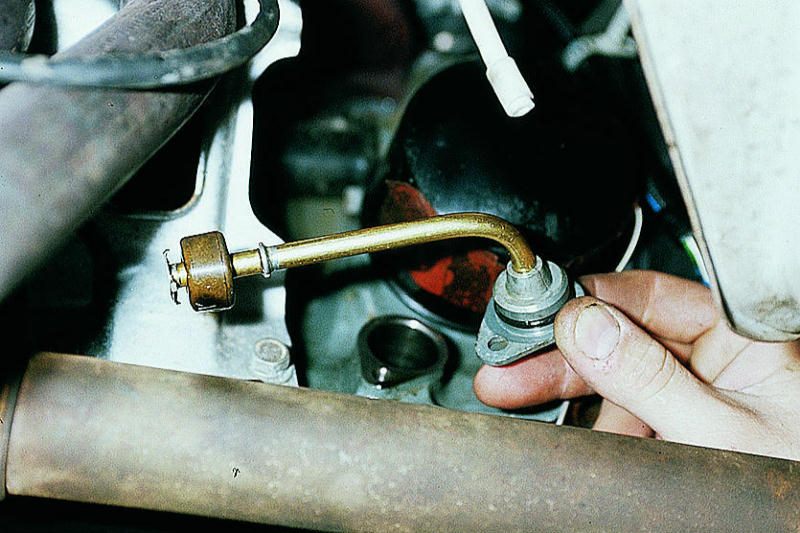
Useful tips when buying your next used car
Content
Checking your service history, getting a vehicle history report, and a pre-purchase inspection are all helpful tips for getting the best deal possible.
Buying a car can trigger a range of feelings and emotions: excitement, anxiety, happiness, fear and, unfortunately, sometimes even sadness. Buying a used car can be especially stressful and time consuming, not to mention intimidating if you're not completely familiar with the process. Buying from a dealer can alleviate some of these problems; however, usually at a premium price. Here are some tips to help you navigate your private party car purchase and avoid stress and sadness.
Check service history
A thorough, complete service history is one of the most valuable sources of used car information. Ideally, you want to see that the car has gone through normal scheduled maintenance, not just an oil change from a local quick lube. Following the recommended maintenance schedule will ensure not only regular oil changes in the vehicle, but also the replacement of other essential elements such as fluids, filters, belts and spark plugs, in accordance with the manufacturer's recommendations.
Viewing your service history can also help determine if any recommended work has been rejected by previous owners. It's understandable to put off doing work to get a second opinion or save on cost, but completely ignoring work for a few months or longer could be a sign that the car may have had other issues that have been ignored.
Vehicle history reports are your friend
While most people have heard of at least one major company offering this service, there are actually several different companies that offer equally comprehensive vehicle history reports. These detailed reports include information that is not normally included in service records or may not be reported to you by the owner, such as accidents or failed emission checks. They often include information about any open recalls or campaigns that need to be completed. They also tell you where the car was purchased, which is helpful if you're trying to avoid cars from a particular region due to concerns about rust.
The prices for these reports vary, so find one that fits your budget and run the report. Some companies offer car buyers a bundle offer or unlimited reports for a set period of time, which is useful if you're looking at multiple cars in your purchase search.
Conduct a pre-purchase inspection before purchasing
Once you study the service history and vehicle history report, you will probably have a pretty good idea of whether or not you want to buy a car. Now it's time to schedule a pre-purchase inspection. This is perhaps the most important step because that is when a qualified professional technician will thoroughly inspect the vehicle. They will drive and listen for any strange or suspicious noises or vibrations. A technician will lift the vehicle to check the underbody for damage or leaks; carefully check the suspension, steering and brake system for wear and damage; visually inspect all mechanical, electrical and hydraulic systems; and scan the on-board control modules located throughout the vehicle, sometimes in the dozens. Many of the technicians who perform these inspections are also good at noticing if body work has been done, especially if it's not the best quality.
While some buyers may be reluctant to let you pre-purchase a car or take time out of your busy life to meet you somewhere, there is an alternative. AvtoTachki offers qualified technicians throughout the country who will meet you on site and conduct a pre-purchase inspection on site. Neither the owner nor you need to be present during the inspection and you will receive a personalized digital inspection form listing everything the technician found. This is not only much more convenient, but also cheaper than going to a dealer or an independent shop.
Be prepared to negotiate a price
Now that you know this is the car you want, keep your cool and don't get too excited. Randomly see if there is room for negotiation in the price. Sometimes there is no wiggle room at all, but more often than not, you can drop the price a bit. Even if it deviates a little from the price, it's better than a sharp stick in the eye or full price, for that matter.
You should have already set a budget for yourself and secured pre-approval for funding, if necessary, before you started looking for a vehicle. Then get a couple of different bluebook values from different sources and get suggested retail values for the specific car model you're looking at to compare the asking price. After that, buy similar models online for reference. Try to keep the same details so that the prices are comparable. Finally, make sure that when you make an offer, you have time to complete the sale right away, even if you have to move to the bank to transfer funds or get a cashier's check. Most sellers will be more willing to accept an offer if they can just get the money and be done with the deal, because selling cars is a hassle too.
Consider purchasing an extended after sales warranty.
Now that you've closed the deal, it's time to protect your newfound investment. If you happen to own a low mileage vehicle that is only a few years old, your vehicle will be the perfect candidate for an extended aftermarket warranty. They are sold by dealers or agents and are designed to extend the factory warranty or cover late model cars with an expired warranty.
However, be sure to do your research as some of these warranty companies can be very sketchy. Read reviews and opinions online and choose a good quality plan from a company with good ratings and reviews. For each plan you are considering, be sure to review the covered systems and exclusions; in general, a higher level of coverage corresponds to more covered systems with fewer exceptions. Make sure an engine and transmission replacement isn't out of the question, as repairs to any of these components in a modern luxury car can cost upwards of $10,000. While prettier plans can be expensive, they provide peace of mind and can really come in handy if you've bought a car that's notoriously expensive to repair, like a European luxury car.
While it is true that there is no perfect formula or advice to get rid of the stress and anxiety associated with buying a used car, we hope that using the above tips will ease some of it. These tips are also secondary to the most important part of the car buying equation, you. If you have any doubts or bad feelings, maybe you should listen to them, even if everything else is in order.

